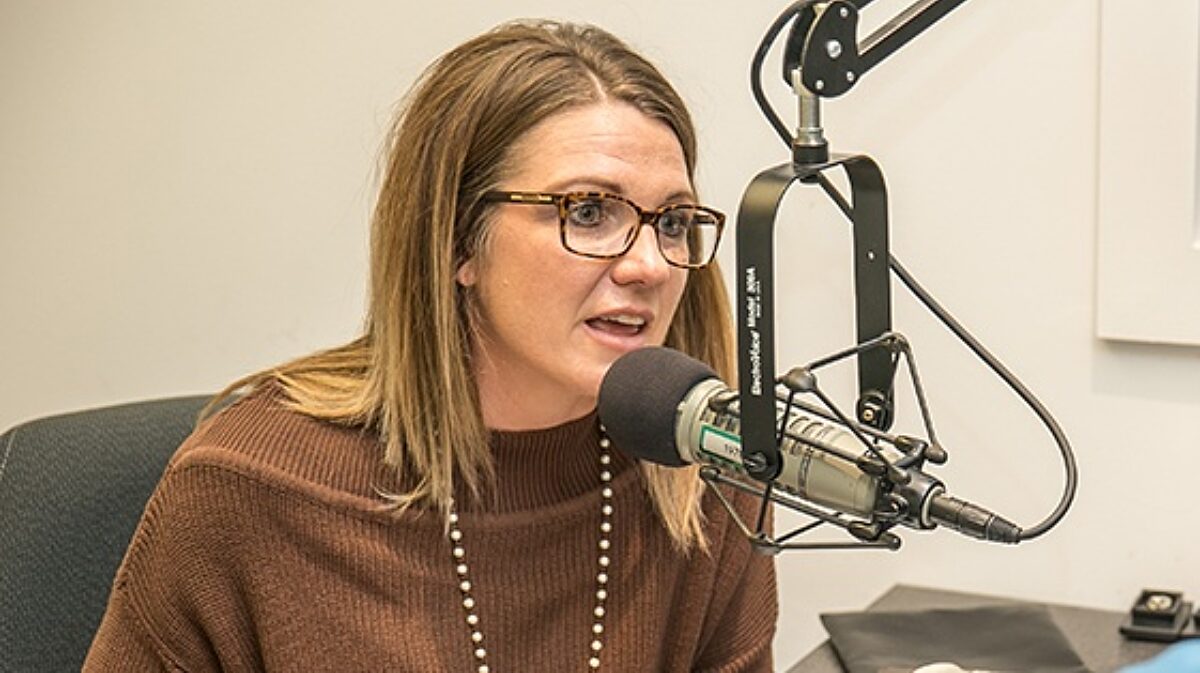Why We Talk to the Media
Guest Author
Special Contributor to FB.org

photo credit: AFBF photo
Guest Author
Special Contributor to FB.org
For as long as many farmers could remember, the story was the same: Don't talk to the newspapers, TV or radio. The message was clear: You have nothing to gain. It's hard to think of any attitude more outdated today.
The sad truth is there's an army of ill-informed activists who want to do away with what they call "factory farming." These anti-farmer voices are loud and ignorant, but also well-placed. Farmers and ranchers have to counter them. Here's how.
Open your Doors
The media seldom get a look at real farmers. Meeting reporters on your own farm helps them understand what really goes on instead of being duped by the latest food or environmental fad. Some farms even have 24-hour webcams so the public can see what really goes on. Whether or not you want to go that far, the public needs to see farmers more. You can help.
Have an Agenda
Have three or maybe four main points you want to make. You should be able to state the basics on each in two or three sentences as well as in a longer format.
Anecdotes are Good; Reliable Data is Much Better
The best reporters aspire to know as much as the people they cover. In some cases they actually get there. I recently met with a Washington Post Reporter who thought most of America's farmland was owned by major corporations which, in turn, produced most of our food. My telling her otherwise was pointless, but she was convinced when I produced a basic fact book from USDA. Having the right facts at your fingertips can be everything.
Play to the Outlet's Interests and Biases
Ag media is seldom hostile, but mainstream reporters are, at best, a mixed bag. As before, you need to know the facts, but couching things in the right terms can mean the difference between good coverage and bad coverage, or nothing at all. Ask yourself what about your story will appeal to the reporter you are speaking with. Many journalists sympathize with government regulators, but very, very few will take the side of arbitrary and abusive treatment at their hands. Use what you know about the outlet to your advantage.
Explain, then Explain Again
Very few non-farmers know much about what farmers do, so avoid words you don't read in the mainstream media. Remember issues such as erosion, runoff and the need for proper drainage are completely foreign to most reporters. Even basics like weed and insect control are poorly understood, if at all. If you have something to say, restate it, repeat the obvious, then ask the reporter in a friendly way why he thinks it matters to you. You'll be surprised how many questions and answers it often takes to get the story right.
Practice, Practice, Practice
Unless you spend most of your day talking about policy, you will need to practice what you're going to say with someone you trust. Family and friends at your county Farm Bureau can be good sounding boards. Friends who don't know farming can be better, still, since they will hear what you are saying as the average person would.
Develop that Relationship
We don't all have a chance to talk to reporters on a regular basis, but it's not inconceivable you could become that resident expert a reporter relies on in the future. So, stay friendly, be open, make time to talk to reporters who want to talk to you. They won't always get everything right, but the better they get to know you, the more likely they will. The world badly needs people who can explain how farming and ranching really work.
Will Rodger is director of policy communications at the American Farm Bureau Federation.
Top Issues
VIEW ALL